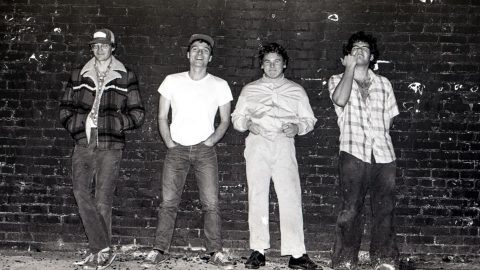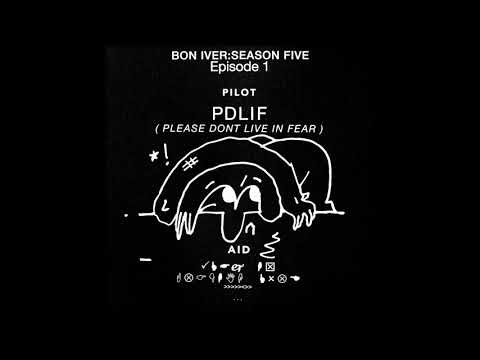
Metric have spoken about how their new album ‘Formentera’ helped the band move forward through the uncertainty of the pandemic – while also reflecting on their two decades in music and the indie sleaze phenomenon.
Speaking to NME in the run-up to the release of their eighth album, frontwoman Emily Haines described the new release, which arrives on Friday (July 8), as “probably the most important record that we can make other than our first album”.
“Logistically, we could not get our band across the border and that was the longest we’ve gone without playing a show since we started,” Haines explained of working on the record during the pandemic. “There was a sense that this could actually be it – a lot of people are not going to bounce back in our industry. There’s always a sense of urgency [when making a record], but it was really pronounced and the sense that we have to manifest our way out of this, it’s all we can do.”
The singer and keyboardist said she was “really resistant” to the idea that working on ‘Formentera’ was the band “just killing time making music”.
“It was the opposite,” she said. “We came out [of this period] not just with like, ‘Oh, Metric wrote some more songs’ – which is an accomplishment – but we really wanted this to be on a whole other level. [Opening track] ‘Doomscroller’ establishes that out of the gate. We were really pushing ourselves to make the thing that will carry us into the next two decades of our career, as opposed to feeling like we’re just clinging to the past.”
The album was previewed by a trilogy of tracks, including the aforementioned ‘Doomscroller’, the buzzing ‘All Comes Crashing’, and the propulsive drive of ‘What Feels Like Eternity’. Speaking about the latter, Haines described it as “a peak of tension and stress”. “I almost picture it like a Nike commercial – someone’s boxing, head down, grinding along, getting through, feeling like, ‘Fuck, this is such a climb’ and then you push through to the other side and you arrive at ‘Formentera’,” she explained.
“It’s unsustainable to be as knotted up as you are at the beginning of the record so I feel like it’s the perfect song to push you over the edge into ‘Formentera’, where you can just let go.”
The album’s title track takes its name from a Spanish island near Ibiza that came to represent the notion of escapism for the band while making the record. Nestled almost in the middle of the album, ‘Formentera’ serves as a moment of release, as guitarist Jimmy Shaw noted. “There’s almost a ‘Eureka!’ moment of realising that you can let go and you can come to terms with the things that you’re not in control of and the rest of the alum is bearing witness to someone finding their own freedom and becoming free of the anxiety,” he said.

He also explained that that idea felt different on this record, given the tumultuous events of recent times. “We, as humans, are painfully aware of what we can’t control anymore,” he said. “The last few years were such an incredible exercise in that. We all have a renewed sense of the fact that we’re in control of a whole lot less than we thought we were and finding a little bit of freedom in that, because you don’t have to hold on so tight – it’s all gonna happen whether you want it to or not.”
Metric have never shied away from discussing important issues in their music or the interviews surrounding each release – something Haines has said made her feel “radically political” at times because of the reaction to their observations and other people not wanting to talk about similar topics publicly.
The singer and keyboardist noted that it feels like more and more people are ready to speak out about big issues now. “The scope of conversation was very narrow [before] and god forbid if I spoke about war or violence or human suffering of any kind,” she said. “I really feel that people are ready to have real conversations about stuff – it’s a sad way that we got here but it gives me hope that at least maybe human connectivity is going to be enhanced by all this bullshit that’s happening in the world. I’m excited that I no longer feel like such a freak for talking about anything.”
Haines has also featured heavily on the Instagram account @indiesleaze, which documents the hedonistic era in alternative between the early ’00s and 2010s – and has become somewhat of an online phenomenon and trend once again. “It’s entertaining,” she said of the revival of that time. “I’m glad people would be like, ‘Indie sleaze, man, that’s cool’. It was fun and irreverent – I think Instagram made people so paranoid about having to be so perfectly put together.”
Shaw also reflected fondly on the era, calling it “the best time”. “You could do whatever you wanted to and then someone started going like this [mimes filming on a phone] and putting you on YouTube – to me that was the end of indie sleaze because then you couldn’t say something weird, you couldn’t do something weird,” he said. “It’s funny that we’re looking back at it like a Netflix show.”
“We had a good run [during that period] and I’m so happy we got to have those absolutely insane times,” Haines added. “I think the UK really knew how to do indie sleaze.”

The pair reminisced about parties at the London hotel K West, which was an infamous late-night party spot in the indie scene in the ’00s. “There were a few times there where shit was getting really wiley,” Shaw said. “I remember they closed the bar at like three, four in the morning and I was rolling a joint on the concierge desk while complaining that the bar had closed. People were putting out cigarettes on the ceiling in the hallway. It was what you would imagine rock and roll would be in that era.
“One of our first publishing deals was with Chrysalis in the UK,” he added. “One of the last times I saw the guy who signed us, he came to the show and gave us a ball of hash – it was like a grapefruit. We were leaving the next morning so I hid it under the vending machine on the lowest floor of the K West and it was there for like seven years of touring.
“Every time we’d come back, we just got it out of the vending machine. It was the best.”
Metric release ‘Formentera’ on July 8 via Metric Music International.
The post Metric: “This is the most important record that we can make other than our first album” appeared first on NME.







